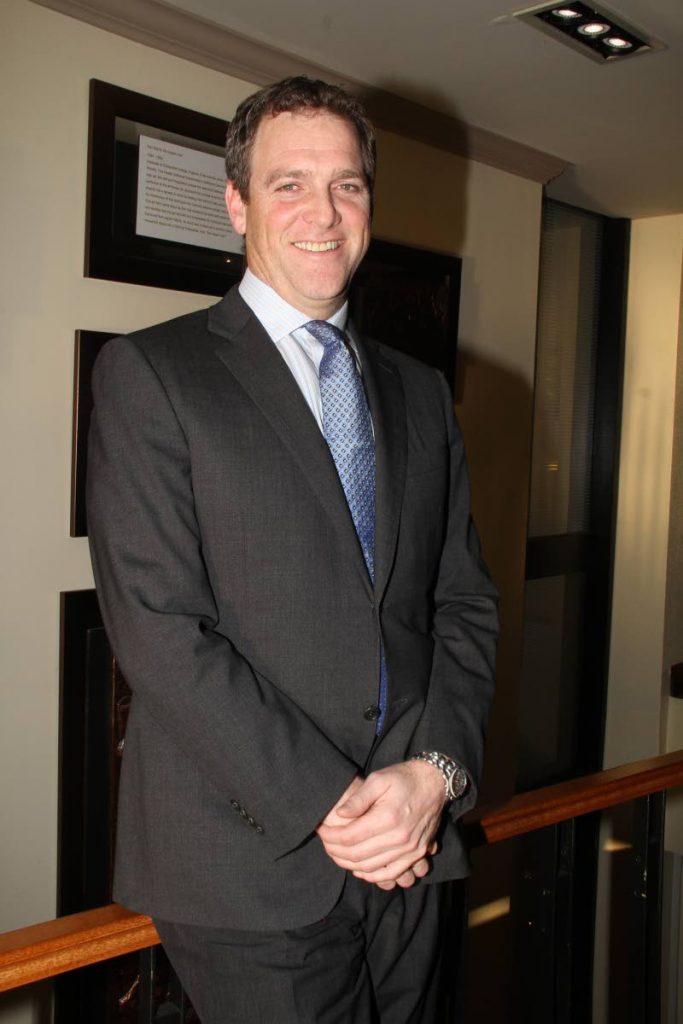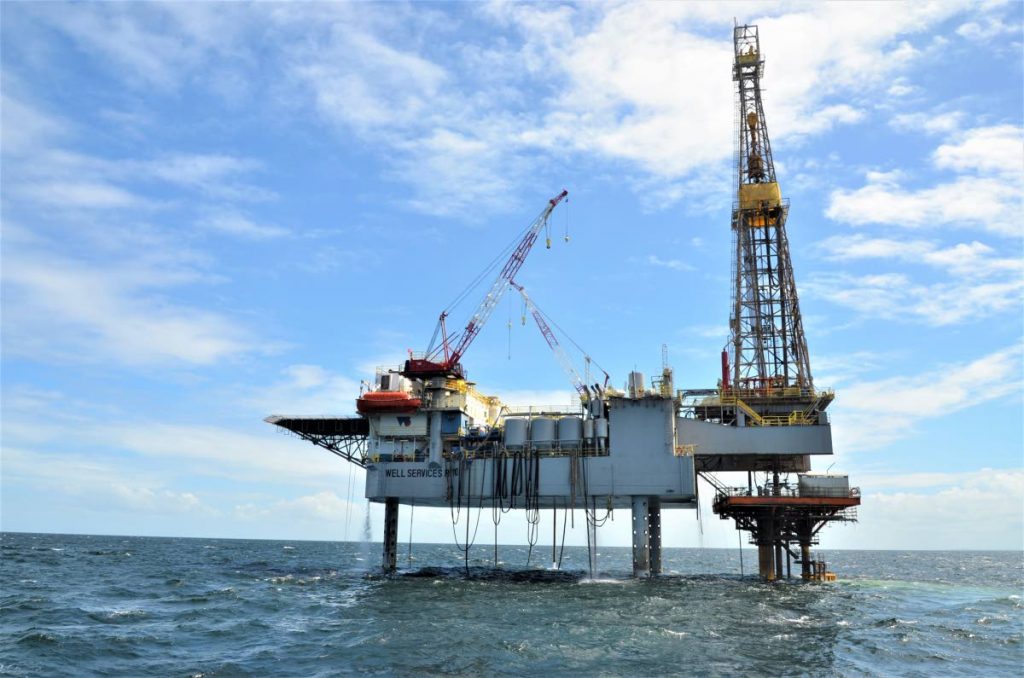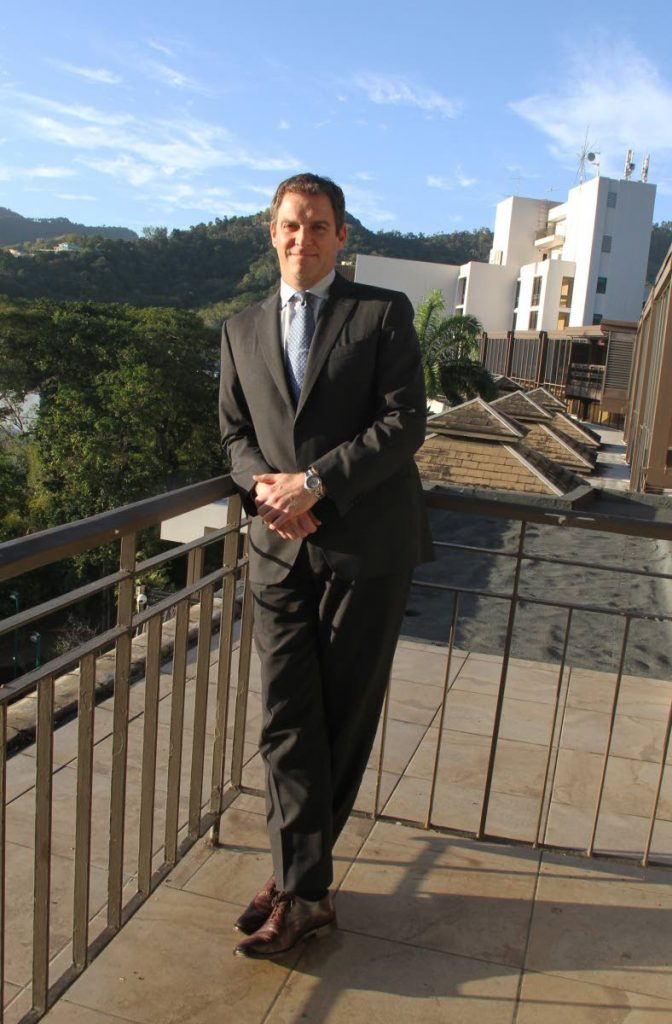Stable but serious

THE PROMAN GROUP has had an indelible mark on the petrochemicals industry in TT.
The Swiss-based conglomerate might not be a household name, but its plants make up 60 per cent of the tenants at the Point Lisas Industrial Estate, including Methanol Holdings (Trinidad) Holdings, one of the biggest methanol producers in the world, and Caribbean Nitrogen Company (CNC) and its sister, Nitrogen 2000, which have a collective output of over one million tonnes of ammonia per year. The group is also the primary investor in De Novo Energy Ltd, a small-scale gas exploration company that recently delivered its first commercial product to the National Gas Company (NGC).
“TT is a major part of our operations and we’re very proud of what that means to us and how that fits into our business. It’s a big chunk of our business and we want it to continue that way,” Proman chief executive, David Cassidy, told Business Day in a recent interview.
Cassidy was in TT to participate in the Energy Chamber’s 2019 Energy Conference last week and in the midst of a packed schedule, managed to make time for a quick interview. “Proman has been operating here as an investor for 30 years already, before the company (incorporated in 1984) even existed, shareholders have been operating since the 1970s. We’ve been part of the fabric for a very long time and we feel very at home here.”
But while TT might be home now, the constant struggle to secure a reliable natural gas supply has taken its toll on the company. The plants at Point Lisas have been suffering from chronic gas curtailments for almost a decade now, and many of them are operating at reduced capacity.
The company has had to mothball various methanol plants over the past four years and two, the M1 methanol plant and the Melamine 2 plant, are currently idle because there’s simply not enough gas to run them. Early last year, CNC had a stand-off with the NGC over gas price, that took almost three months to resolve. The result, Cassidy noted in his address to the conference, is that TT is no longer the top ammonia nor top methanol producer in the world.
The country is also not currently part of Proman’s growth strategy. Instead, they’ve sought new ventures, including an 800,000 tonne per year ammonia plant in Mexico, and a two million tonne per year methanol plant in Texas.

“TT is not part of our growth strategy at the moment because of the current environment,” Cassidy said. But even as he acknowledged the curtailments, Cassidy said Proman was interested in being part of the solution, which is why the group invested US$250 million in De Novo.
De Novo managed the impossible last year when it transformed the abandoned and ignored Iguana field off the west coast of TT into a commercially viable producing well in just about three years. “It’s certainly a different risk profile but there was some in-house competence (Proman owns over 100 natural gas wells in Texas). The situation for gas had deteriorated so badly and we had become educated enough in the situation to know that it was going to get worse. The risk of doing nothing was higher than the risk of drilling offshore and De Novo’s success had given hope to the industry,” Cassidy said.
Proman, then is still committed to Trinidad, he said, and over the years has invested over US$1 billion, including De Novo, but there’s no plan for capacity expansion in petrochemicals.
“We’ve had curtailments and although everyone’s working hard to get back to normal there hasn’t yet been an enthusiastic statement by anybody about a massive find of gas or oil or something that would justify further investment in new petrochemical plants. We’re focused on the moment here by joining part of the upstream,” Cassidy said.
The impact has been “significant.”
“We’ve had operating losses for three consecutive years, and we’re now coming to the end for two reasons. The first is De Novo gas will finally allow us to make operating profits in TT and the second is that for our US facility, the investment cycle is over and we are expecting to get very good returns there,” Cassidy said.
Enabling environment
It’s not just the curtailments that make it hard for the company though. While the gas situation is absolutely critical, Cassidy noted the country has “no doubt” fallen in various competitiveness rankings, especially ease of doing business. “It’s more bureaucratic than it used to be,” he said.
For the De Novo project, for example, Cassidy said the company had to file 70 different permits with 16 government agencies. “We understand the reason. You absolutely have to have regulation but it’s so onerous that we had (to have) a separate department, which had significant cost to it. More importantly, it was also slow. This needs to be addressed. We need to have more efficient, more transparent processes. We need to know that when we fill out a form to a certain office and hand it in it gets processed in a certain amount of time,” he said.
The circumstances that allowed the company to grow have changed, he noted.
In his speech to the energy conference, Cassidy noted that the company grew at a time when the abundance of natural gas ensured a secure and reliable supply to the Point Lisas estate. International investment was also enabled through a government policy that was facilitative, especially with providing necessary infrastructure like ports as well as providing incentives, and ensuring that the upstream activity was matched to downstream demand via the NGC. “In my view, this was a significant advantage for TT, where the State worked to make sure that the risks of the upstream and downstream were well rewarded, and that the people directly benefited from sales of natural gas,” he said.

Cassidy emphasised that this was still a great country to do business in, with a fantastic human resource (98 per cent of staff is local), great culture and society and stable democracy. But there’s more that can be done.
“We have been here for a very long time and we like it here so it would be with a sad heart to have to pick up sticks and go but the long-term prognosis is not yet good,” he said. De Novo has given them a bridge to continue looking for a way forward, he said, but a new model is needed.
“I think it’s important everyone gathers around the table to figure out how to get this country back into expansion mode. There are hydrocarbons out there. How do we get it onshore so we can actually consume and have an economic incentive to do so? It is possible but I think everyone has to start with an open mind.”
Proman has 14 plants on the Point Lisas Industrial Estate
• Proman AG (Trinidad) Ltd (the company’s construction arm)
• Methanol Holdings (Trinidad) Ltd (MHTL)
• Caribbean Nitrogen Company Ltd (CNC) and Nitrogen (2000) Unlimited, (N2000)
• Process Energy (Trinidad) Ltd
• Industrial Plant Services Ltd (IPSL)
• DeNovo Energy Ltd
Box 2
About Proman
Proman started in 1984 as a project management and engineering-construction company for large-scale projects. Today the company is headquartered in Switzerland, with operations in the US, Trinidad and Tobago, Mexico and the Middle East. Its main business is petrochemicals. It is the second biggest methanol producer in the world, with half of production coming from TT. It’s one of the top ten fertiliser companies in the world, with most assets in TT and now, Mexico. The second strand of operation is construction and engineering, and the third is marketing and distribution of its petrochemical products. The company’s most recent venture is in the upstream market, with TT offshore investments through De Novo, as well as shale gas in the US.


Comments
"Stable but serious"